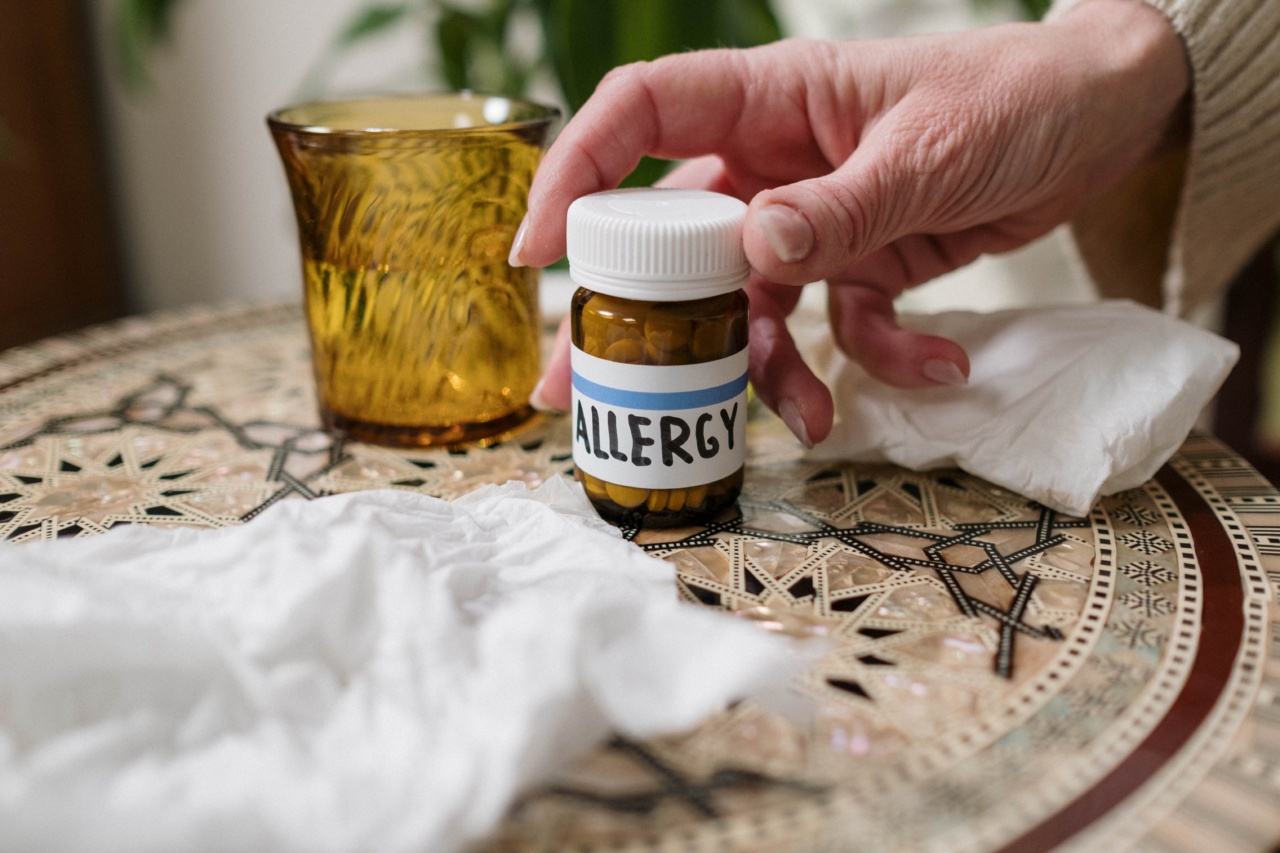Allergic rhinitis, commonly known as hay fever, is a type of allergic reaction that affects the nasal passages. It occurs when the immune system overreacts to harmless substances in the environment, such as pollen, pet dander, or dust mites.
This article will delve into the symptoms, causes, and possible cures for allergic rhinitis.
Symptoms of Allergic Rhinitis
The symptoms of allergic rhinitis can vary from mild to severe and may include:.
- Sneezing
- Runny or stuffy nose
- Itchy or watery eyes
- Itchy throat or ears
- Coughing
- Postnasal drip
- Fatigue
- Headache
- Decreased sense of smell or taste
These symptoms are usually seasonal, as they are triggered by specific allergens present during certain times of the year.
However, some individuals may experience year-round symptoms if they are allergic to substances that are present all year, such as pet dander or dust mites.
Causes of Allergic Rhinitis
Allergic rhinitis is caused by an immune system response to allergens.
When an allergic person comes into contact with an allergen, their immune system recognizes it as a threat and releases chemicals, including histamine, which trigger the allergic symptoms. Common allergens that can cause rhinitis include:.
- Pollen
- Dust mites
- Pet dander
- Mold spores
- Certain foods
- Some medications
- Chemicals
The risk of developing allergic rhinitis is higher in individuals with a family history of allergies.
Additionally, exposure to environmental tobacco smoke, air pollution, or certain occupational hazards may increase the likelihood of developing allergic rhinitis.
Diagnosis and Treatment
If you suspect you have allergic rhinitis, it is important to seek a proper medical diagnosis.
A healthcare professional will evaluate your symptoms and medical history, and may also conduct allergy tests to determine the specific allergens triggering your symptoms.
Once diagnosed, the treatment options for allergic rhinitis include:.
- Avoidance: The most effective way to manage allergic rhinitis is to avoid the allergens that trigger your symptoms. This may involve staying indoors during high pollen counts, using dust mite-proof covers on bedding, or removing pets from your living environment.
- Medications: Over-the-counter antihistamines, decongestants, and nasal sprays can help alleviate symptoms. In severe cases, prescription medications such as corticosteroids may be necessary.
- Immunotherapy: Allergy shots or sublingual tablets may be recommended for individuals with severe or persistent symptoms. These treatments can help desensitize the immune system to specific allergens over time.
It is important to work closely with a healthcare professional to develop an individualized treatment plan that suits your needs and effectively manages your symptoms.
Lifestyle and Home Remedies
In addition to medical treatments, the following lifestyle modifications and home remedies may provide some relief from allergic rhinitis:.
- Nasal irrigation: Using a saline solution to rinse the nasal passages can help flush out allergens and reduce congestion.
- Keeping windows closed: This helps prevent allergens from entering your home.
- Using air purifiers: These devices can filter out allergens from indoor air.
- Wearing a mask: When exposed to allergens, such as during yard work or house cleaning, wearing a mask can reduce your risk of symptoms.
- Reducing indoor humidity: Using a dehumidifier can help control mold and dust mite growth, which can trigger allergies.
- Cleaning regularly: Vacuuming carpets, washing bedding in hot water, and eliminating dust-collecting items can help minimize allergen exposure.
- Eating a healthy diet: A diet rich in fruits, vegetables, and omega-3 fatty acids may help reduce inflammation in the body and alleviate symptoms.
It is important to note that while lifestyle modifications and home remedies can provide some relief, they may not be sufficient for individuals with severe allergic rhinitis. Consult with a healthcare professional for a comprehensive treatment plan.
Conclusion
Allergic rhinitis, or hay fever, is a condition that causes bothersome symptoms such as sneezing, runny nose, and itchy eyes. It is triggered by an immune system response to allergens present in the environment.
While there is no permanent cure for allergic rhinitis, there are various treatment options available to manage symptoms. By understanding the causes and triggers and working closely with a healthcare professional, individuals with allergic rhinitis can effectively alleviate their symptoms and improve their quality of life.






























